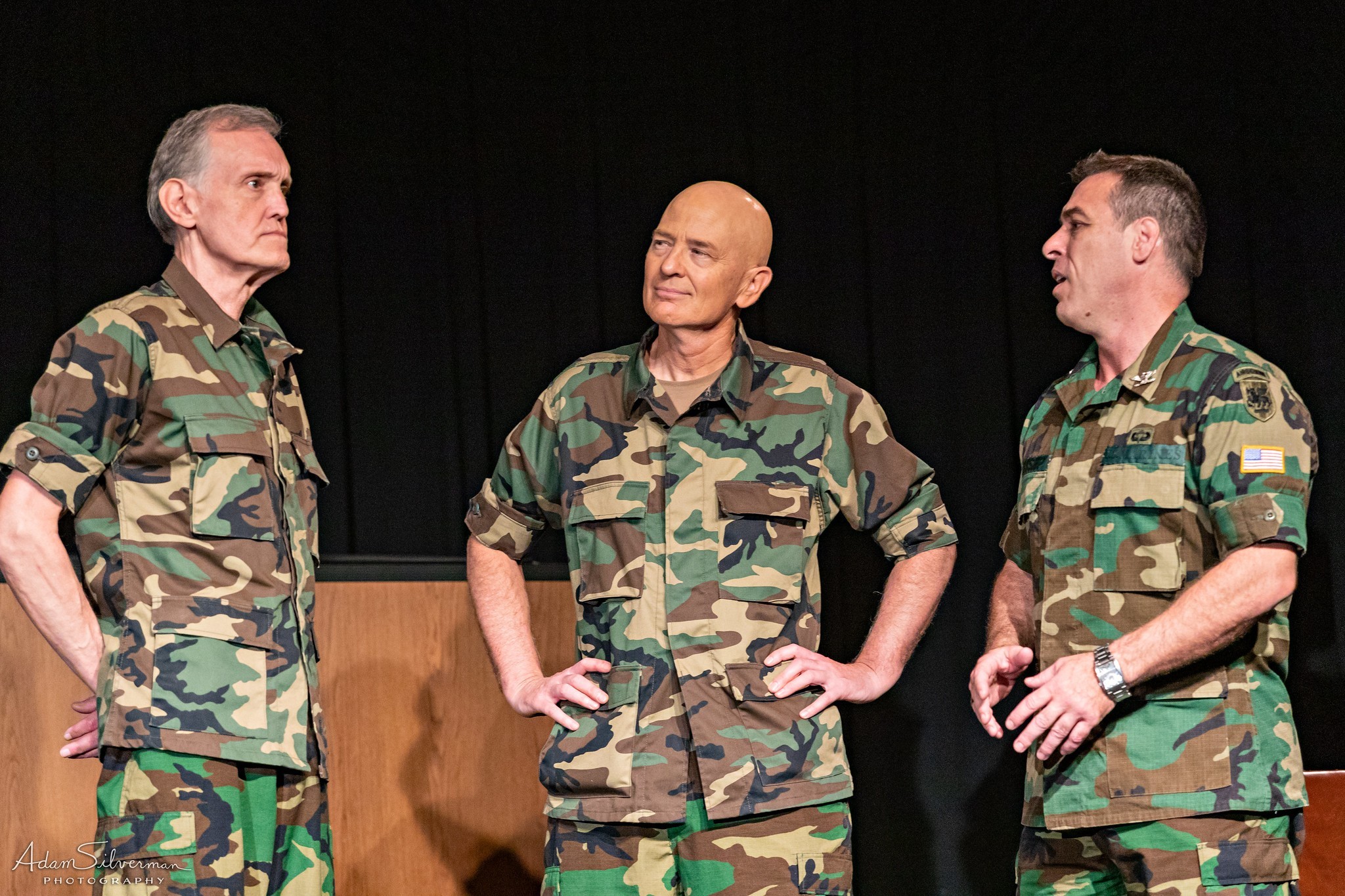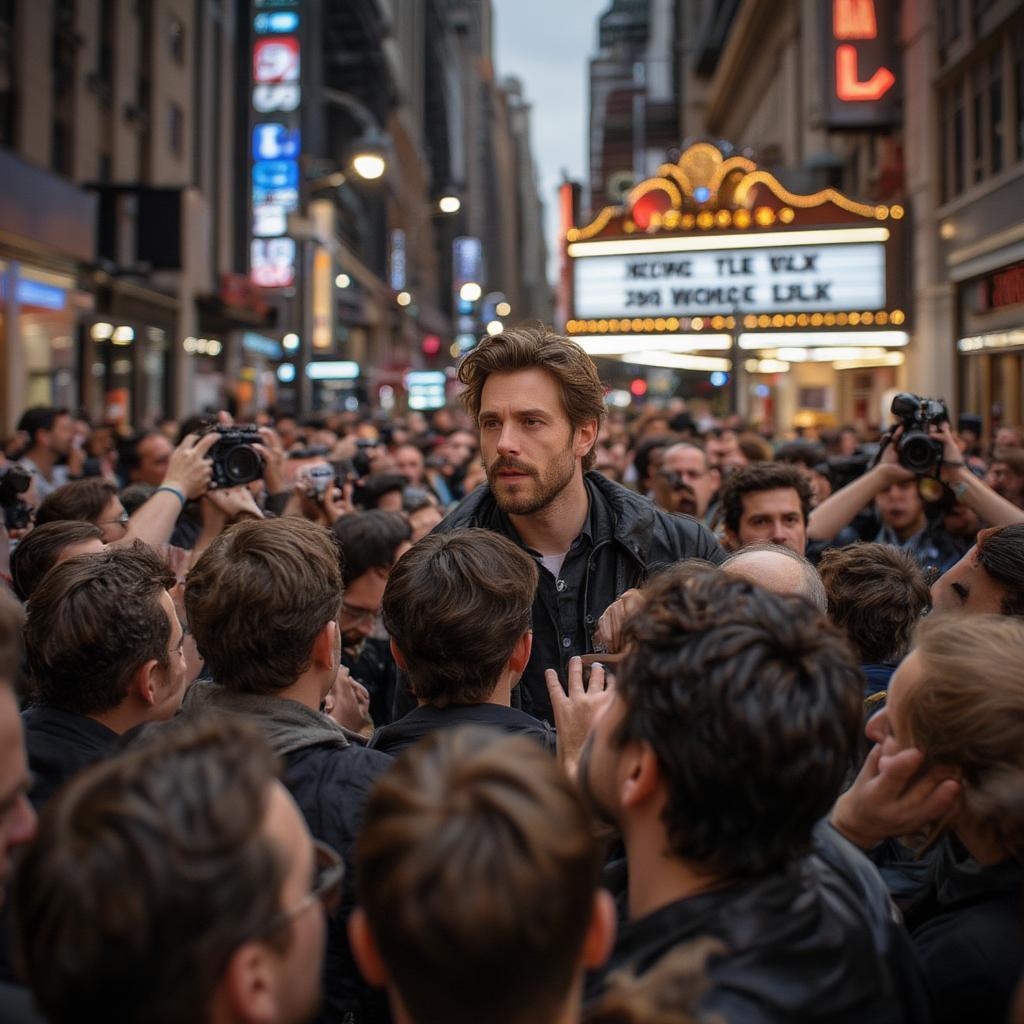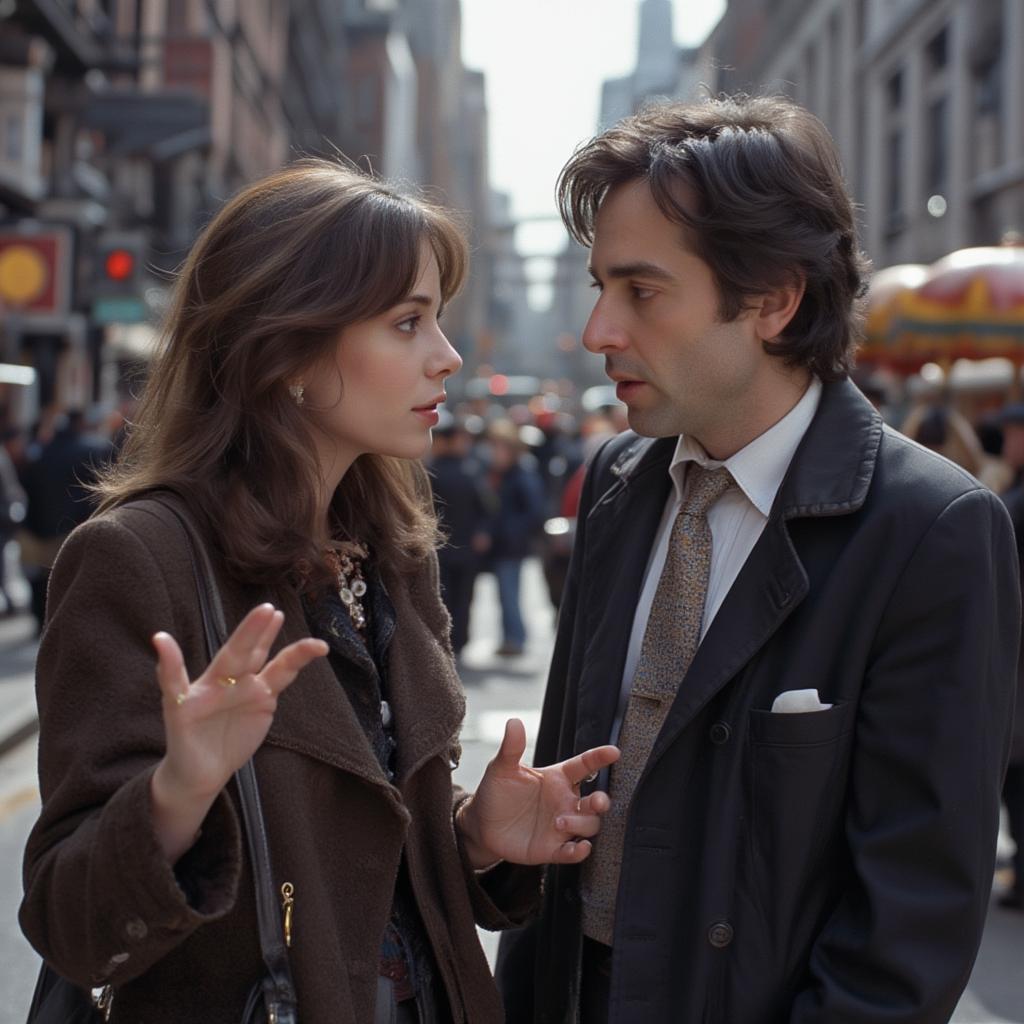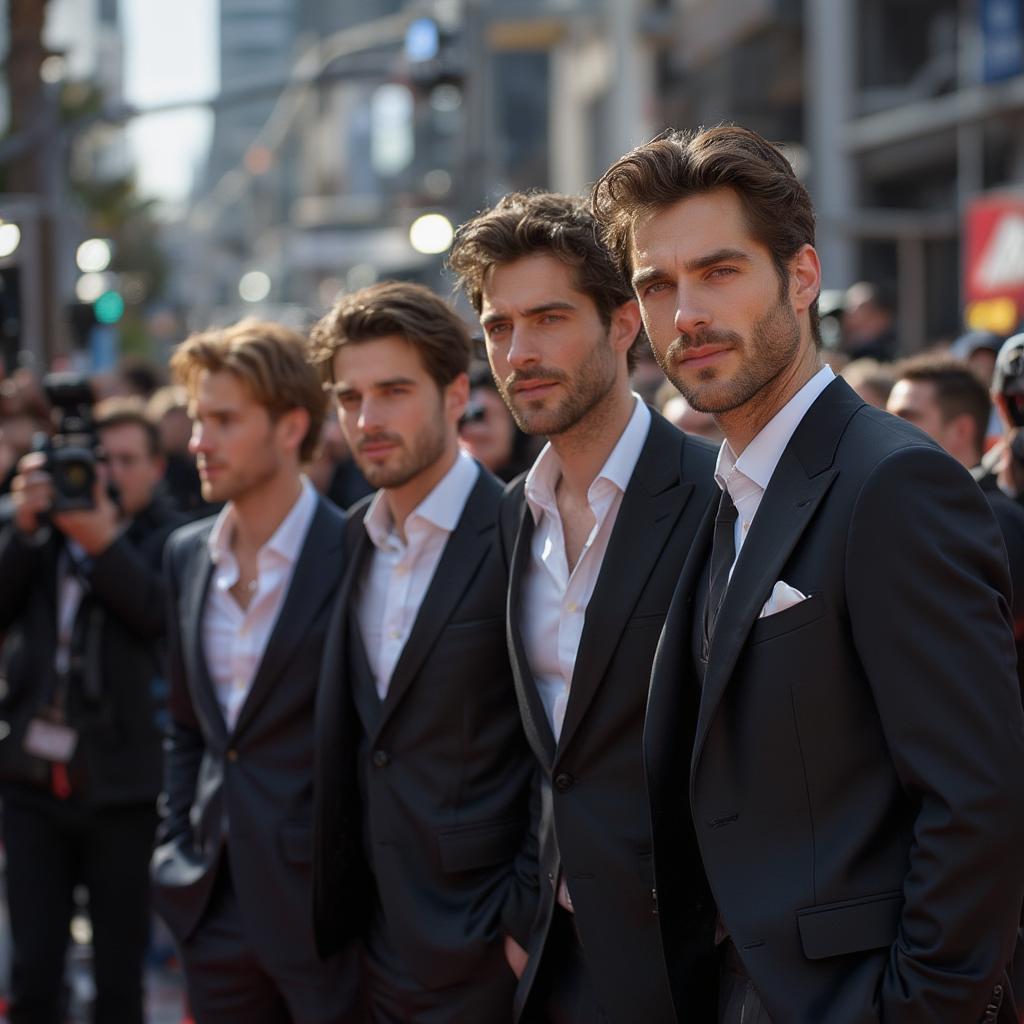Famous Actors That Were in the Military: Unseen Heroes of Hollywood
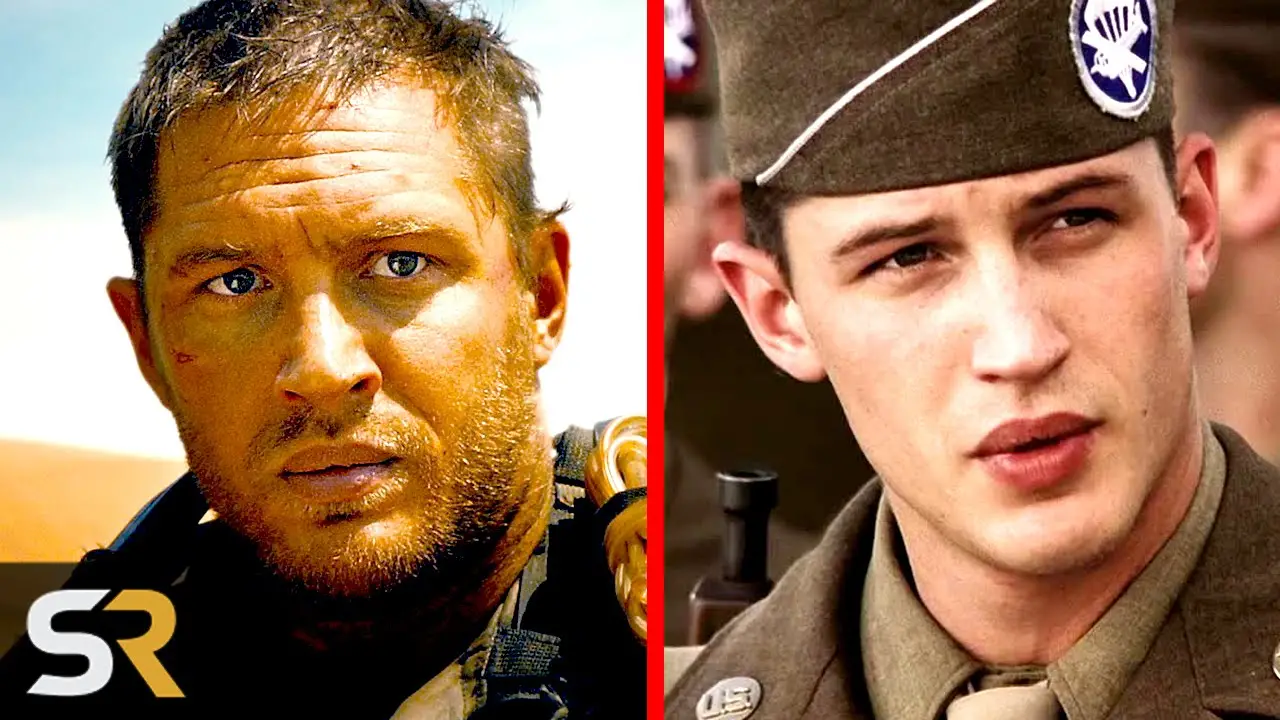
Famous Actors That Were in the Military. Throughout history, many actors have hung up their costumes for a military uniform, contributing not only to entertainment but also to national service. The juxtaposition of fame and service creates a fascinating narrative that reveals various layers of these individuals’ lives. For instance, Adam Driver, who captures audiences with his compelling performances, served as a Marine before dipping his toes into the Hollywood dream.
His experiences undoubtedly imbue his roles with a sense of authenticity that resonates deeply with viewers. Consider the remarkable journey of Elvis Presley; widely recognized as the King of Rock and Roll, he traded his microphone for a rifle during his voluntary service in the Army—a transformative experience that kept him grounded amid the heights of fame. This intertwining of pop culture with a commitment to serve raises thought-provoking questions about identity, purpose, and the legacies left behind by those who have walked both paths.
The Dual Paths: Service and Stardom

Actors like Jimmy Stewart and Clint Eastwood exemplify this duality remarkably. Stewart, who rose to fame during Hollywood’s golden age, not only starred in iconic films but also flew combat missions during World War II. His valor earned him the highest military rank achieved by an actor, serving as a potent reminder that celebrity status does not overshadow one’s duties or bravery. Similarly, Eastwood served in the Army during the Korean War, offering him unique life experiences that likely influenced his gritty portrayals of tough characters in films such as Dirty Harry. Their military background sheds light on how experiences in the armed forces can shape an actor’s perspective, with battles fought off-screen often translating into raw emotional depth onscreen.
Famous Actors That Were in the Military – Insights into the Dual Paths of Service and Stardom

The military service of these acclaimed actors provides valuable insights into the interplay between their professional pursuits and personal commitments. By exploring the stories of individuals who have walked both the path of fame and the path of service, we can gain a deeper understanding of the complex and often unexpected ways in which these two realms intersect.
One of the most striking aspects of this duality is the manner in which an actor’s military experiences can infuse their on-screen performances with a heightened sense of authenticity and emotional depth. For instance, Clint Eastwood’s rugged and gritty portrayals of tough, no-nonsense characters in films like Dirty Harry are widely believed to have been influenced by his own time in the Army during the Korean War. Similarly, Jimmy Stewart’s poignant depictions of heroism and sacrifice in war-themed films like It’s a Wonderful Life and Mr. Smith Goes to Washington likely drew upon his own firsthand experiences as a decorated combat pilot during World War II.
These examples suggest that the trials and tribulations faced by actors during their military service can imbue their subsequent acting roles with a sense of realism and emotional resonance that might not have been achievable otherwise. The dual paths of service and stardom, when navigated with authenticity and commitment, can result in performances that captivate audiences and leave a lasting impact on popular culture.
Famous Actors That Served in the Military – The Redefinition of Masculinity in Hollywood

Interestingly, the military histories of these stars compel modern institutions—both military and entertainment—to reflect on what it means to be masculine. The archetypes portrayed by these veteran actors often embody traditional American heroism, showcasing resilience, bravery, and sacrifice. Chuck Norris, another notable veteran actor, challenges the conventional notions of masculinity through his martial arts skills in productions like Walker, Texas Ranger while simultaneously advocating for gratitude towards service members. This intersection can provoke discussions about how cinema influences societal expectations surrounding manhood, potentially idolizing a version molded by military service.
Exploring the Intersection of Masculinity and Military Service in Hollywood
The presence of famous actors with military backgrounds in Hollywood raises fascinating questions about the interplay between masculinity, military service, and the entertainment industry. These actors, through their on-screen personas and off-screen experiences, have contributed to shaping societal perceptions of what it means to be a “real man.”
One of the key aspects to consider is the way in which these veteran actors often embody archetypes of traditional American heroism. Characters portrayed by the likes of Jimmy Stewart, Clint Eastwood, and Chuck Norris frequently display qualities such as resilience, bravery, and a willingness to sacrifice for the greater good. These attributes are often closely associated with the military ethos and the idealized notion of masculinity that it promotes.
By infusing their characters with these masculine virtues, these actors have the potential to reinforce or even redefine societal expectations surrounding manhood. Their on-screen personas can become cultural touchstones, influencing the ways in which audiences perceive and internalize the qualities that are deemed desirable or aspirational in a male figure.
Moreover, the advocacy work of actors like Chuck Norris, who has championed causes related to supporting service members, further blurs the line between the entertainment industry and the military. This intersection prompts deeper discussions about the ways in which Hollywood can shape, perpetuate, or even challenge the conventional notions of masculinity that are rooted in military service and heroism.
Ultimately, the military histories of these celebrated actors serve as a prism through which we can examine the complex and evolving relationship between masculinity, military service, and the influence of popular culture. By critically analyzing these intersections, we can gain valuable insights into the ways in which societal expectations and norms surrounding gender and heroism are constructed, contested, and reimagined.
Unforeseen Implications of Vulgar Celebrity

On the other hand, the presence of famous actors in the military sphere sometimes leads to controversial discussions. Does fame dilute the significance of their service? When names like Prince Harry are associated with military backgrounds, some might argue that celebrity status could overshadow genuine sacrifices made by non-celebrities. Yet, this veneer might also humanize high-profile figures, allowing the public to understand them beyond their flashy personas. It prompts reflection on how society perceives veterans, especially when filtered through the lens of celebrity, thus igniting broader conversations around privilege, fame, and merit.
The Complexities of Celebrity and Military Service
The intersection of fame and military service can give rise to a range of complex and sometimes controversial discussions. On one hand, the presence of high-profile actors and celebrities in the armed forces can be seen as a means of humanizing these individuals and allowing the public to connect with them on a deeper level. When figures like Prince Harry are associated with military backgrounds, it can serve to bridge the gap between the glitz and glamour of celebrity and the gritty realities of service.
However, this dynamic also raises questions about the potential dilution of the significance of military service. Some might argue that the celebrity status of these individuals can overshadow or trivialize the genuine sacrifices and hardships faced by non-famous service members. There is a concern that the public’s perception of military service may become skewed or distorted when it is filtered through the lens of celebrity.
Additionally, the involvement of famous actors in the military sphere can sometimes lead to accusations of privilege or unfair advantages. The public may question whether these individuals are afforded special treatment or opportunities that are not available to the average service member. This can create a sense of resentment or skepticism towards the value and authenticity of their military contributions.
Ultimately, the intersection of celebrity and military service is a nuanced and multifaceted issue. It prompts us to reflect on the ways in which society perceives and values military service, and to consider the complex interplay between fame, privilege, and the sacrifices made by those who serve their country. By examining these dynamics, we can gain a deeper understanding of the societal implications of this unique intersection and the broader conversations it ignites.
Conclusion
Ultimately, the careers of these celebrated actors lie at the crossroads of art and honor, revealing nuanced narratives that beckon a deeper inquiry into their life’s meanings and how they resonate in popular culture today. Each tale unfolds like a script still in its writing phase—one worth exploring. The intertwining of fame and service in the lives of these actors challenges us to reconsider the boundaries between entertainment and national duty, and to ponder the legacies they leave behind. As we delve into the stories of these individuals, we are invited to reflect on the complex and multifaceted nature of identity, purpose, and the enduring impact that can be forged when the worlds of stardom and service collide.

